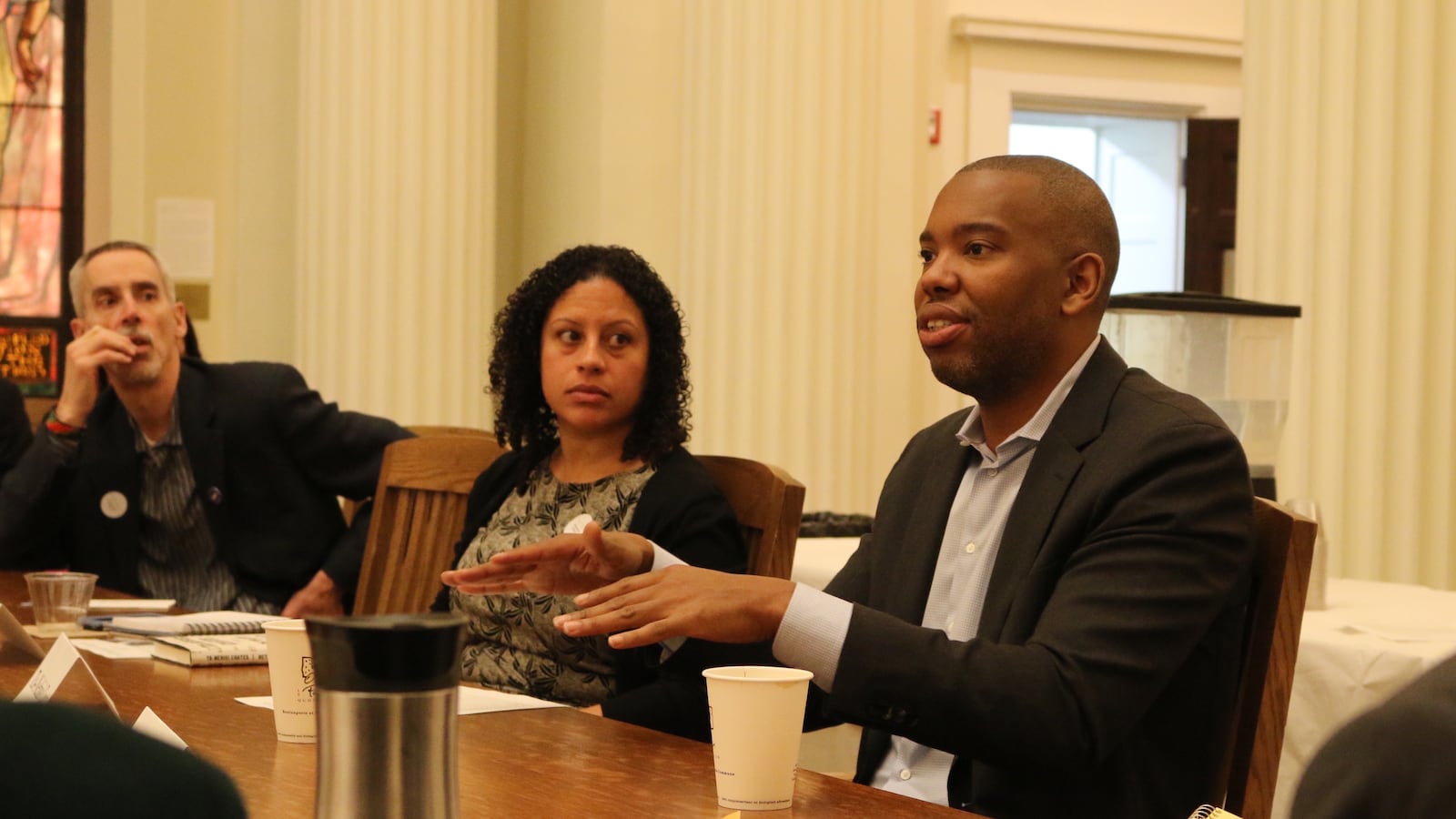To Ta-Nehisi Coates, the experience of black people in America is inseparable from institutions and history — from the plunder and enslavement of black bodies, to racist housing policy and school segregation.
But on Monday morning, Coates offered a “master class” for a group of New York City school leaders who were eager to know what they could do to help dismantle those systems of oppression, one classroom at a time.
But Coates had some difficult advice for the principals: Know your limits.
“This is horrible to say, but it’s not all up to you. It just ain’t. … There’s only a certain amount that you can affect.”
Addressing a crowd of roughly 30 school leaders from traditional public, charter, and private schools at a forum organized by The Academy for Teachers, Coates spoke frankly about the role of public schools and his experience as a student in Baltimore.
“I guess I feel like the school system sort of failed me, he said. “School was not a physically safe place … violence was a thing you were always coping with.”
That public school experience ultimately affected his decision to send his son, Samori, to private school, Coates said.
A MacArthur “genius” fellow, Atlantic correspondent, and author of “Between the World and Me” — a book framed as a letter to Samori on what it means to be black in America — Coates acknowledged the fundamental unfairness of opting out of public schools.
“I pay outrageous tuition basically to keep this kid safe. And it’s just completely, completely, completely unfair,” he said. “I feel almost like I robbed the system.”
Though Coates didn’t lay out a roadmap for specific education reforms, he frequently returned to the idea of failure, and the way schools can keep students from taking intellectual risks. He never considered himself a successful learner, he said, because he struggled to engage with school.
“People and educators often deeply underestimate that it actually hurts to fail,” he explained. “The world is so much more open than any report card or any test score.”
It wasn’t until he attended Howard University, where the library never seemed to close, that he found a way to stoke his own intellectual curiosity.
But Coates noted the headwinds teachers face — the consequences of homelessness, poverty and the criminal justice system — and argued that teachers, like black people, are often easy scapegoats for larger institutional failures.
So how to resist that demonization? Coates urged educators to “push back” against the idea that it’s solely their responsibility to solve longstanding social problems, and encouraged them to team up with other activists to fight for change.
“Drawing on the history of African-Americans in this country, you really have to be willing to struggle on behalf of things that are not resolvable in your lifetime,” he said. “The fact that you’re fighting for kids who have not yet been born doesn’t make the struggle irrelevant … The problems weren’t created in one generation.”

